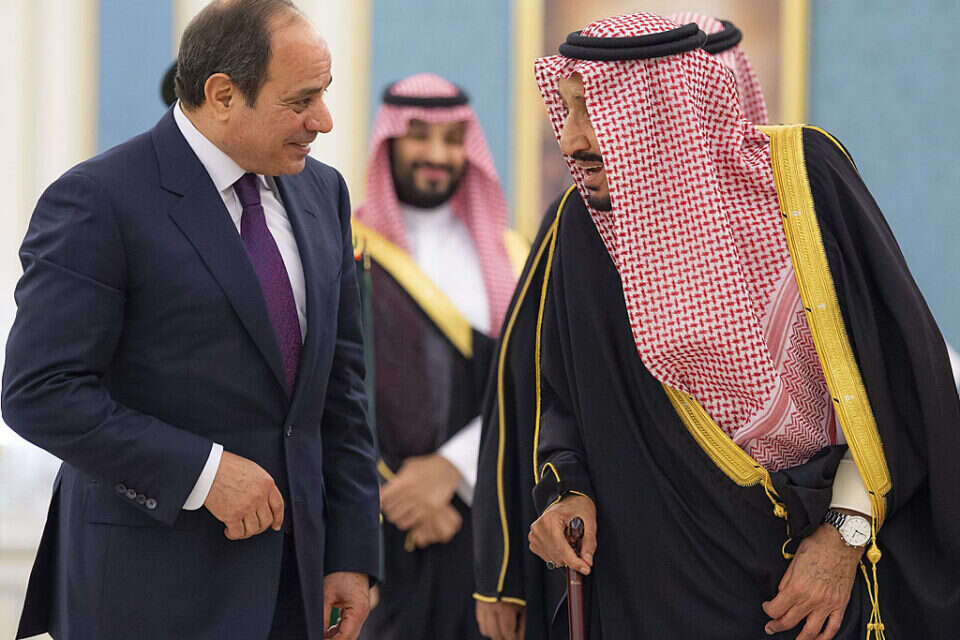Just before it marks the month of Ramadan in April, Egypt is expected to soon launch another phase in the “New Cairo” venture, the new administrative capital.
First workers are expected to arrive at government offices later this month, in a city being built east of the current capital.
The president, 'Abd al-Fatah al-Sisi, likes to cut red ribbons in glittering launches.
His Egypt is exploding with real estate ventures - from Alexandria to the Sinai Peninsula: highways, new cities and artificial islands. Still, 103 million people are supposed to live somewhere. But plans aside - and reality aside.
Construction projects are budgeted at tens of billions of dollars, and are likely to benefit with the upper class.
In order not to dive into a larger budget deficit - Egypt must cut back on the subsidies it distributes to the masses on bread and other foodstuffs.
Cairo also committed to this as part of its agreements with the International Monetary Fund.
Model of New Cairo, Photo: EP / Archive
Just a few weeks ago, Egyptian Prime Minister Mustafa Medboli expressed satisfaction with the Egyptian economy's indices, which showed an increase in growth and a reduction in the unemployment rate to 7.4%.
Although the data hide the millions of Egyptians living below the poverty line, the cards in Cairo were actually preyed upon by the war in Europe.
On February 24, Russia invaded Ukraine, shaking the world economy.
Both countries are considered huge exporters of flour and wheat.
Without them, supply goes down and demand goes up - along with prices.
In other words, Egypt will have to spend more money on bread subsidies - or conversely, accelerate the subsidy cuts to fund its construction projects - that is, raise the price of bread for the poor.
With this baggage, a-Sisi traveled to Riyadh last week to meet with King Salman and his son, Regent Muhammad bin Salman.
The Egyptian president believes that the Gulf states are experiencing unprecedented prosperity, and may help him.
The Russian invasion placed these countries in a new position in light of the rise in oil prices.
If in January they begged the Biden administration to return the Houthis to the list of terrorist organizations, following the UAV attacks on their territories - now, Ben Salman and the heir apparent Muhammad bin Zayd refuse to receive calls from the US president (according to the Wall Street Journal) ).
Conversation with Putin
The Arab states' disappointment with the United States also stems from the Biden administration's conduct in the nuclear talks.
On his trip to Riyadh, al-Sisi signaled that he too did not intend to put his trust in the Biden administration.
Apparently, a day later he even spoke with Russian President Vladimir Putin.
He knows that in case the rise in bread prices takes people to the streets - the US will not be there for him.
Al-Sisi hopes to receive assistance from Saudi Arabia in the political sector as well.
The Ethiopian Prime Minister, Avi Ahmad, recently declared a unilateral operation of the Renaissance Dam, despite its possible impact on the flow of the Nile River, on which Egypt and Sudan rely.
The ambition is that Riyadh will be able to pressure Addis Ababa to return to the negotiating table on the issue of the dam, given the close economic ties between Saudi Arabia and Ethiopia.
Incidentally, the lack of trust in the Americans in the Middle East was also reflected in reports of the Palestinian Authority's unresponsiveness to the request to condemn Russia on the part of the United States. .
In any case, Israel will be able to leverage these developments to strengthen its ties with Arab countries.
The fear of the impact on the water economy could translate into desalination cooperation with Cairo.
In addition, a political move against the Houthi militia in Yemen (for example, in its definition as a terrorist organization), could strengthen the alliance with Abu Dhabi and promote normalization with Riyadh.
Even Saudi Arabia's stronger position these days, as a result of rising oil prices, may push it in that direction, despite statements of support for a two-state solution.
If not in the immediate term, then at least in the coming years.
Were we wrong?
Fixed!
If you found an error in the article, we'll be happy for you to share it with us

